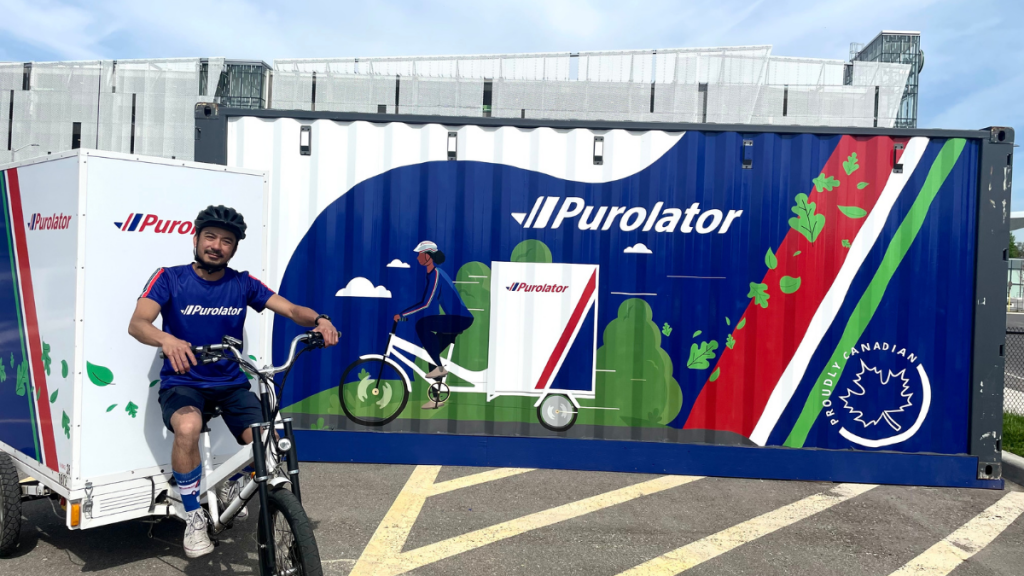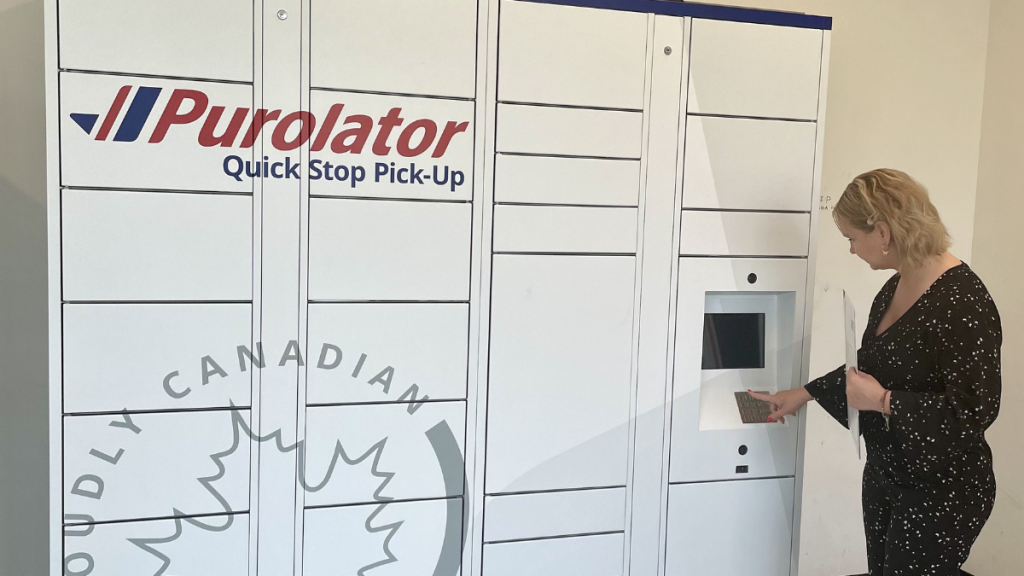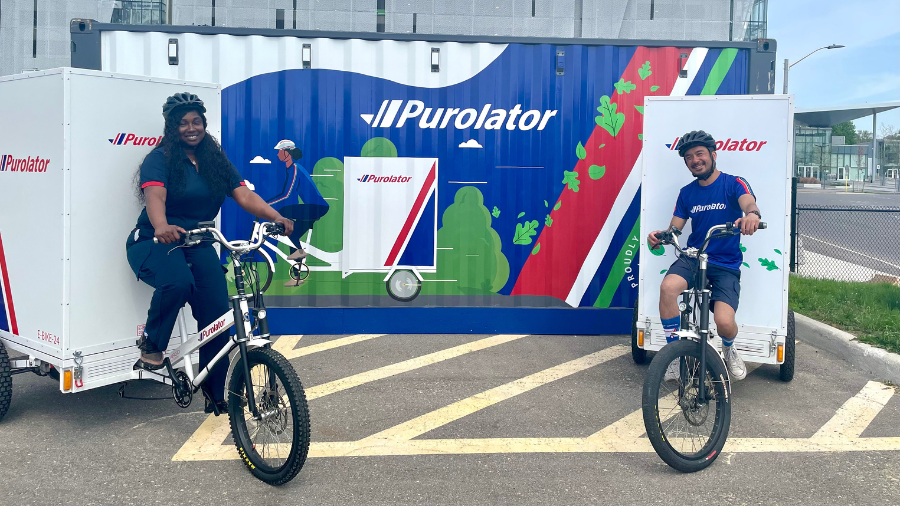Headquartered in Mississauga, Purolator is a leading courier and transportation company, providing integrated freight, package and logistics solutions across North America. Cindy Bailey, Corporate Sustainability Officer and Chris Henry, Director of National Fleet, recently sat down with us to discuss Purolator’s approach to sustainability and business competitiveness. Chris also participated in a business panel session that helped to launch the new Mississauga Climate Leaders Program.
What climate actions is your company taking that is most impactful, and that you are most proud of?
- Our ambition is to be the Greenest Courier in Canada. Most recently, we set science-based reduction targets for 2030 that will put us on a path to net-zero emissions by 2050. Of course, with more than 75 per cent of our total emissions coming from our ground fleet, rail and air operations, reducing our transportation-related emissions will be critical to reaching our goals. This year we announced a $1 billion investment to electrify 60 percent of our last-mile delivery vehicles over the next seven years. We also continue to look for other innovative ways to reduce our environmental impact and serve our customers better. For example, this past May we opened an Urban Quick Stop at the Cooksville GO Station in Mississauga. The Urban Quick Stop includes a 20-foot shipping container that holds shipments destined for the local surrounding area and uses two electric cargo bikes (e-bikes) instead of trucks to provide a “greener” way to deliver parcels. Switching from trucks to e-bikes on these routes will reduce our emissions by 27 tonnes of carbon dioxide equivalent (CO2e) per year.
Why is your company taking climate action?
- As one of Canada’s largest courier companies, we have the privilege of serving communities across the country. We deliver packages to 99.9 percent of postal codes in Canada! Because of this, we know we can have a big impact both within our industry and the communities we serve. We take this leadership opportunity seriously. At the same time, we believe that providing more environmentally sustainable products and services is becoming a requirement for successful businesses. Customers and employees ask us about what we are doing to address the climate crisis.

What strategies, resources, principles have been most valuable in guiding and advancing your climate action?
- We conduct a materiality assessment to help us identify, assess and prioritize our sustainability issues and impacts. The assessment helps us focus on the issues with the greatest impact on our business and stakeholders. For example, it became clear from our stakeholders that we needed to take a strategic and comprehensive approach to sustainability. This led to the creation of three pillars underpinning our sustainability strategy: Empowering Our People, Delivering for Our Planet, and Helping Our Neighbours.
- Additionally, we recently revitalized the overall core values of the company to ensure they’re relevant and resonate with our team now, and in the future. Sustainability was added as one of the eight core values, which are at the core of everything Purolator does.

What are some key challenges you have faced?
- Purchasing electric trucks is relatively simple. Ensuring you have the infrastructure in place to reliably power and maintain those vehicles is another story. We are spending a lot of time speaking with utility companies and municipalities across the country to communicate our priorities and understand what is possible. At the same time, technologies continue to evolve, creating both uncertainty and opportunity for new and better solutions. Furthermore, there is a change management and stakeholder engagement component that’s required. And there is a significant upfront cost with a return on investment that isn’t currently positive in most cases. That said, it’s about future-proofing your business, aligning your electrification strategy with your long-term corporate goals and values, and collaborating with all stakeholders to execute successfully.
What advice would you give anyone in the early stages of their sustainability journey?
- If you are in the early stages, you first need to understand what the most material areas of impact are for your business and collect data to better understand these impacts. Having this data is not only critical to setting targets and being transparent with your stakeholders, but it will help guide you in the actions you should take, both in the short term, with the low-hanging fruit, and in your long-term strategy.
If you are business looking to reduce your carbon emissions, improve energy efficiency and advance a sustainability strategy, the Mississauga Climate Leaders program (MCLP) may be for you. Click here to learn more about the MCLP.





